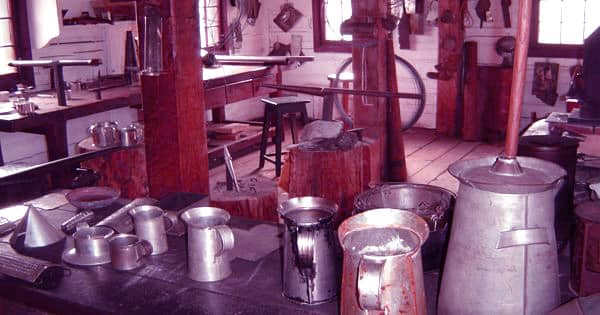Definition of human resource planning: Human resource planning can be defined as the process of identifying the number of people required by an organization in terms of quantity and quality. All human resource management activities start with human resource planning. So we can say that human resource planning is the principle/primary activity of human resource management.
From human resource planning the organization identifies how many people it has currently and how many people will be required in future. Based on this information major human resource decisions are taken.
Process of Human resource planning:

Human resource planning can be defined as the process of identifying the number of people required by an organization in terms of quantity and quality. All human resource management activities start with human resource planning. So we can say that human resource planning is the principle/primary activity of human resource management.
The process of HRP involves various steps they can be explained with the help of the following diagram.
Personnel requirement forecast :-
This is the very first step in HRP process. Here the HRP department finds out department wise requirements of people for the company. The requirement consists of number of people required as well as qualification they must posses.
Personnel supply forecast :-
In this step, HR department finds out how many people are actually available in the departments of the company. The supply involves/includes number of people along with their qualification.
Comparison:–
Based on the information collected in the 1st and 2nd step, the HR department makes a comparison and finds out the difference.Two possibilities arise from this comparison.
No difference :-
It is possible that personnel requirement = personnel supplied. In this case there is no difference. Hence no change is required.
Yes, there is a difference :-
There may be difference between supply and requirement. The difference may :
i. Personnel surplus
ii. Personnel shortage
Personnel surplus :-
When the supply of personnel is more than the requirement, we have personnel surplus. We require 100 people, but have 125 people. That is we have a surplus of 25 people. Since extra employees increase expenditure of company the company must try to remove excess staff by methods of
i. Layof
ii. Terminatio
iii. VRS/CR
Personnel shortage :-
When supply is less than the requirement, we have personnel shortage. We require 100 people; we have only 75 i.e. we are short of 25 people. In such case the HR department can adopt methods like Overtime, Recruitment, Sub-contracting to obtain new employee
Advantages of HRP/need/importance/role/benefits
Human resource planning can be defined as the process of identifying the number of people required by an organization in terms of quantity and quality. All human resource management activities start with human resource planning. So we can say that human resource planning is the principle/primary activity of human resource management.
The process of HRP plays a very important role in the organization. The importance of HRP can be explained as follows.
Anticipating future requirement :-
Thru this process of HRP, the company is able to find out how many people will be required in future. Based on this requirement the company could take further actions. This method also helps the company to identify the number of jobs which will become vacant in the near future.
Recruitment and selection process :-
The recruitment and selection process is a very costly affair for a company. Many companies spend lakhs of rupees on this process. Therefore recruitment and selection must be carried out only if it is extremely necessary. HRP process helps to identify whether recruitment and selection are necessary or not
Placement of personnel :-
Since the HRP process is conducted for the entire organization, we can identify the requirements for each and every department. Based on the requirement, we can identify existing employees and place them on those jobs which are vacant.
Performance appraisal :-
HRP make performance appraisal more meaningful. Since feedback is provided in performance appraisal and employee is informed about his future chances in same company, the employee is motivated to work better. Information for all this is collected from HRP process.
Promotion opportunity :-
HRP identifies vacancies in the entire organization including all the branches of all the company. Therefore when the company implements promotion policy it can undertake its activities in a very smooth manner.
Limitations of human resource planning:
Human resource planning can be defined as the process of identifying the number of people required by an organization in terms of quantity and quality. All human resource management activities start with human resource planning. So we can say that human resource planning is the principle/primary activity of human resource management.
Although HRP is a very advantageous method it has some limitations which can be explained as follows
The future is uncertain :-
The future in any country is uncertain i.e. there are political, cultural, technological changes taking place every day. This effects the employment situation. Accordingly the company may have to appoint or remove people. Therefore HRP can only be a guiding factor. We cannot rely too much on it and do every action according to it.
Conservative attitude of top management :-
Much top management adopts a conservative attitude and is not ready to make changes. The process of HRP involves either appointing. Therefore it becomes very difficult to implement HRP in organization because top management does not support the decisions of other department.
Problem of surplus staff :-
HRP gives a clear out solution for excess staff i.e. Termination, layoff, VRS,. However when certain employees are removed from company it mostly affects the psyche of the existing employee, and they start feeling insecure, stressed out and do not believe in the company. This is a limitation of HRP i.e. it does not provide alternative solution like re-training so that employee need not be removed from the company.
Time consuming activity :-
HRP collects information from all departments, regarding demand and supply of personnel. This information is collected in detail and each and every job is considered. Therefore the activity takes up a lot of time.
Expensive process :-
The solution provided by process of HRP incurs expense. E.g. VRS, overtime, etc. company has to spend a lot of money in carrying out the activity. Hence we can say the process is expensive
Reasons for increased importance for HRP/Factors affecting HRP in the organization:
Human resource planning can be defined as the process of identifying the number of people required by an organization in terms of quantity and quality. All human resource management activities start with human resource planning. So we can say that human resource planning is the principle/primary activity of human resource management.
Employment :-
HRP is affected by the employment situation in the country i.e. in countries where there is greater unemployment; there may be more pressure on the company, from government to appoint more people. Similarly some company may force shortage of skilled labour and they may have to appoint people from other countries.
Technical changes in the society :-
Technology changes at a very fast speed and new people having the required knowledge are required for the company. In some cases, company may retain existing employees and teach them the new technology and in some cases, the company have to remove existing people and appoint new.
Organizational changes :-
Changes take place within the organization from time to time i.e. the company diversify into new products or close down business in some areas etc. in such cases the HRP process i.e. appointing or removing people will change according to situation.
Demographic changes :-
Demographic changes refer to things referring to age, population, composition of work force etc. A number of people retire every year. A new batch of graduates with specialization turns out every year. This can change the appointment or the removal in the company.
Shortage of skill due to labour turnover :-
Industries having high labour turnover rate, the HRP will change constantly i.e. many new appointments will take place. This also affects the way HRP is implemented.
Multicultural workforce :-
Workers from different countries travel to other countries in search of job. When a company plans it’s HRP it needs to take into account this factor also.
Pressure groups :-
Company has to keep in mind certain pleasure. Groups like human rights activist, woman activist, media etc. as they are very capable for creating problems for the company, when issues concerning these groups arise, appointment or retrenchment becomes difficult.
















